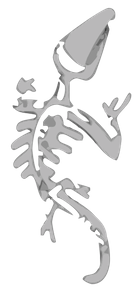
Posted
Hi,
Is it possible to view and use chords with roots based on flats instead of sharps?

IOW, instead of C#, D#, F#, G#, A# above,
Db, Eb, Gb, Ab, Bb instead.
Sun, 2024-02-18 - 22:30 Permalink
OK, good to know.
The issue is that I want to see b's here even though the Key is C major (etc.)
It's no good to change the Key just to make the display different. After all , the Key is the Key, god only knows all the things that setting might affect.
This is not a critical issue, but it is an ease-of-use thing that varies by user.
I hope at some point we can have a user choice -
Enharmonic Display: By Key (default) / All #'s / All b's.
Sun, 2024-02-18 - 22:33 Permalink
I'd like to note also that it's not just the menu (above) that is the issue.
The chords that are placed in progressions follow suit, and thus being stuck with a display that is personally jarring propagates thru the program.
If it is so jarring that one feels the need to do manual editing just to fix it then it is really a time-sucking workflow problem.
So, more here than might initially meet the eye, IMO.
Fixed once at the source, all users can be happy with the display that's personally best for them.
Mon, 2024-02-19 - 13:33 Permalink
Many, though unf. not all, musical softwares accommodate user preference for what we are calling here enharmonic display.
I appreciate and value that, and I can say with confidence that many others do also.
For some, it's a "don't care". Fine.
But to try to make a dogma out of it, well, that makes no sense to me at all.
Mon, 2024-02-19 - 13:42 Permalink
This is not dogma. Neither is it a matter of personal preference.
Bb, for example, simply does not exist in the C Major horizontal scale. You may enter that name in the input field but it will be displayed as A#. If you want Bb you need to change the key.
Bb has even a different pitch than A# in just intonation, for example.
Tue, 2024-02-20 - 20:26 Permalink
There are no flats in C major.
Hm. This may be true for Synfire itself (I cannot tell), but I would argue that this statement is wrong for music theory in general. In fact, if you do a statistical analysis of many tonal pieces in C major, I am pretty confident that you would find far more pitches spelled Bb than A#. For example, bVII is just two fifths away, while #VI is far more remote.
For example, the Wikipedia page on borrowed chords lists several chords with flat alterations under common chords.
Just my 2 EUR cent.
Wed, 2024-02-21 - 10:26 Permalink
I would even say, that the standard C major palette is not quite correct in this regard. It consists of a scale set that includes C major, C harmonic major and C melodic major. But the sixth degree of C harmonic major, for example, should be represented as Ab rather than G#, shouldn't it?
Wed, 2024-02-21 - 10:33 Permalink
Yes, of course there are flats and sharps in melodies (or other individual notes in a score). These even depend on whether a melody is running upwards or downwards. But we are talking about the root note of a chord here, which is taken from the horizontal scale(s) by definition.
So a Bb that appears as a root note of a chord in C Major suggests it is borrowed from another key (which is fine). It also implies different scales. That's why you need to change the key for that chord (or any number of borrowed chords) if you insist on Bb instead of A#.
My point is that writing Bb vs. A# is not a matter of visual appearance, but has inherent meaning and physical consequences for harmony. Most other programs are conveniently ignorant in this regard because they can't handle it.
Wed, 2024-02-21 - 10:45 Permalink
But the sixth degree of C harmonic major, for example, should be represented as Ab rather than G#, shouldn't it?
I doubt that. You could verify this by checking the frequencies in just intonation. Although I don't know if there are specific just tunings for the harmonic major and melodic major scale. So I assume the spelling conventions for C Major also apply there too.
Wed, 2024-02-21 - 10:48 Permalink
Wed, 2024-02-21 - 11:46 Permalink
Well, excessive chord borrowing of that kind might force you to re-tune your instruments all the time, because enharmonic equivalence is not a given in all tunings.
Synfire needs to assume a default spelling for every note in every key. If a chord is supposed to be borrowed from another key, that key must be set and the spelling will change.
The wrong spelling of notes that are added by harmonic and melodic major needs to be fixed. Back when that code was written, I simply missed the fact that these are borrowed from minor, which is an exception to the rule for arbitrary scales.
Wed, 2024-02-21 - 12:05 Permalink
Probably depends on tuning. If you decide to play in a certain key, you obviously need to tune all 12 notes, not only 7.
I don't follow you there. I only do songwriting and according to your website I don't belong to the "Advanced" group of users. So I can't say anything about that. I only have my musical knowledge from Wikipedia. And Wikipedia says, the harmonic major scale has a flat note on the 6th degree.
Wed, 2024-02-21 - 13:11 Permalink
Synfire needs to assume a default spelling for every note in every key
Sure, and I would suggest to consider that some of the default spellings for tones in the major scale should be flat instead of sharp, because these are more likely.
Side note: Considering tuning for Synfire is a bit of a red herring, as Synfire does not support tuning differences for enharmonic variants anyway. If it would, then including some flats instead sharps would be even more important, though. For example, I would suggest that in major the chord iv (e.g., Fm in C major) is more common than the chord III (E in C major), and therefore IVb might be a preferred scale degree spelling over V# as a default.
Wed, 2024-02-21 - 13:17 Permalink
And Wikipedia says, the harmonic major scale has a flat note on the 6th degree.
In principle, both Ab and G# are indeed possible in C major with borrowed chords (e.g., G# is part of E, which is the dominant leading to the parallel minor Am of C major). So, deciding between G# and Ab for C major might be a bit difficult, though I think I still lean towards Ab somewhat.
I think the case is more clear-cut for Eb vs D# in C major or Bb vs A# in C major: the flat spelling for these tones are much more likely in C major.
Wed, 2024-02-21 - 13:22 Permalink
Thanks for the hints. Fixed it already.
Even if Synfire doesn't distinguish tunings, it should show the most common and plausible spellings in each context. Many beginners use it as an opportunity to get in touch with music theory.
Wed, 2024-02-21 - 13:22 Permalink
You could verify this by checking the frequencies in just intonation.
Just for completeness: in JI, if the third of the Fm chord would be tuned as G# instead of Ab, that would result in a rather harsh dissonance.
(Let me know if you would want more details on this.)
Wed, 2024-02-21 - 13:55 Permalink
In principle, both Ab and G# are indeed possible in C major with borrowed chords (e.g., G# is part of E, which is the dominant leading to the parallel minor Am of C major
Of course, almost any note or chord is "possible" in any key. It will always be possible to find some distant relationship across three corners. But if I click on a scale named C harmonic major in a palette and then a chord G#... is highlighted, I don't think there's much room to discuss.





